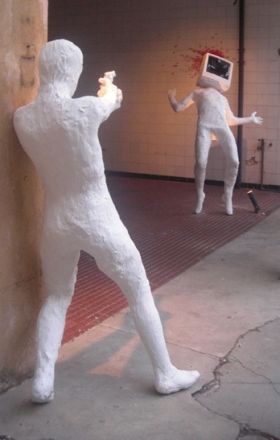I want self knowledge. It’s part of what I do in life. For me it isn’t work, it’s love, but by the same token, it isn’t for everybody, nor should it be. There’s no money in it, not everyone feels passionate about it, not everyone has the aptitude, many are turned off by introspection, considering it a waste of time and many don’t believe in ‘that sort of thing.’ Well, I enjoy educating myself, and I get part of my ongoing education and a sense of satisfaction from ‘that sort of thing’ that also harmonizes with my supporting the work of the Lifeboat Foundation.
At the same time I’m aware of a certain ‘unconscious’ role that I forged in my early life crucible so as to get me what I wanted at a time when my thinking and my ‘worldview’ were primitive to say the least. What might anyone ‘want’ in such a situation? Imagine. Using whatever genetic and epigenetic equipment entered this life with me I interacted in complexity with the other participants in the crucible, emerging as … what? Here lie the origins of liberated or not,according to psychological dynamic thinking.
Notice how hard it is to get rid of that ‘I.’ I wish I knew more about my ‘I.’
Well, enough of that, so for now, in one way or another I resolved my early life core dilemma in a way that left a pattern. A role in a drama learned early on in life endures. It endures, firstly because certain psycho-biological infrastructure is embedded in various functions of ‘me’ and secondly because my drama serves a purpose for me. If I didn’t use it, it would fade away in disuse. I value it. Simplistically said, if I ‘succeed’ it’s because I’m superior, if I ‘fail’ it’s because I’m misunderstood. A hero in a world of fools. My drama is my treasure, I’ll resist if someone tries to persuade or coerce me to let go of my treasure, and if I imagine it’s the only tool I have, I can’t imagine life without it. Who said that life was rational?

